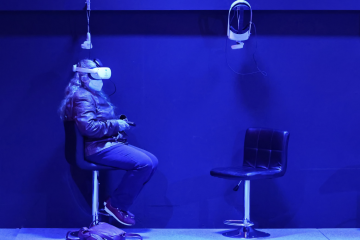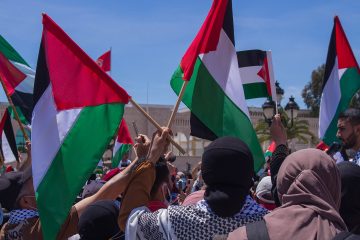Civil unrest, cruel tragedy, and unjustified brutality have defined the reign of the Islamic Republic of Iran, which came to power after the 1979 Revolution that toppled the Pahlavi dynasty. Since its inception, the Islamic Republic has cracked down on women’s rights, bringing initially rebuffed rumours about the regime’s plans to life and drastically changing what it means to be a woman in Iran. Today, women are served jail sentences for refusing to wear the compulsory hijab, sneaking into sports stadiums, defending themselves against male assault perpetrators, riding bikes, singing, dancing, legally defending other women, and more.
Repressing Women’s Rights
Under the pro-Western, secular Shah Mohammad Reza Pahlavi, women’s rights were expanded upon. Much to the dismay of the clerics, women gained suffrage and the right to serve for public office in 1963 under a reform program known as the White Revolution. The Women’s Organization of Iran (WOI) created in 1966 — a grassroots, feminist organization patroned by Princess Ashraf, the Shah’s twin sister— played a particularly significant role in advancing women’s rights. In 1967, the WOI was victorious in introducing the Family Protection Act, a set of progressive family laws that granted or enhanced women’s rights to receive an abortion, divorce, and obtain child custody. However, upon assuming power, the Islamic Republic regime revoked the Family Protection Act and introduced compulsory veiling laws. After the 1979 Revolution and the fall of the Shah, Ayatollah Khomeini became the Supreme Leader of a newly theocratic Iran, and conservative clerics took control of the Majlis, Iran’s national parliament. Women cabinet leaders who had served during the Pahlavi dynasty were swiftly exiled or executed.
After the regime revoked the Family Protection Act and announced its compulsory veiling laws, women took to the streets in protest to protect the rights they had earned. However, a lack of organization and support for the movement quelled early efforts to restore women’s rights. As the years went on, Iranian women’s status continued to erode under the tenure of the patriarchal government. Discrimination against women runs rampant, and many live in fear of being punished for expressing their concerns or dissenting the regime.
Defending Women’s Rights Amid the Internet Age
In the face of the Islamic Republic’s constant repression, women have identified new methods of resistance and mobilization via the Internet. Leading women’s rights activists have dominated Iran’s blogosphere, using social media to mobilize fellow Iranians to push back against the regime’s oppression. One of the women using digital media to spread a feminist message is journalist and activist Masih Alinejad. Alinejad is the founder of My Stealthy Freedom (MySF), an online movement fighting against the compulsory veiling laws that stifle women’s freedom of choice. The movement encourages women to post photos and videos of themselves with uncovered hair to protest the mandate.
In 2017, Alinejad launched “White Wednesdays,” encouraging both men and women in Iran to wear white as a sign of protest. This effort gained significant traction after the disappearance of a women’s rights activist, Vida Mohaved, who published a viral video waving her removed white hijab on a stick for an hour on Enghelab Street in Iran’s capital city, Tehran. In solidarity, Iranian women launched a series of protests referred to as “the Girls of Enghelab Street,” replicating Mohaved’s act. Tens of women who partook in this effort were arrested.
“My Camera is My Weapon” is another MySF digital campaign that has provided Iranian women with an important platform to voice their grievances and protest the discrimination that they face everyday. This initiative empowers women to hold antagonists accountable by recording and sending videos of the backlash they face for defying government mandates. Recognizing that this campaign has effectively powered civil disobedience, the Iranian government employed an intimidation tactic against women, decreeing that those who send videos to support Alinejad’s campaign risk being served a ten-year prison sentence. Nonetheless, women have continued to post for the campaign. The Internet has served to provide a protective cloak of anonymity which saves some from prosecution, but some women are ultimately caught and punished. Just recently, a young woman by the name of Yasaman Aryani was served a sixteen-year sentence for publishing videos of herself encouraging other women to uncover their hair and singing in public while supporting Alinejad’s “White Wednesdays” campaign.
Alinejad, who has referred to the hijab as “the most visible form of [women’s] oppression,” has been exiled and threatened by the regime. In an effort to punish and silence her powerful calls to action, the Iranian government has jailed her brother, Alireza Alinejad, who chose imprisonment over disowning his sister on state television. By standing by Masih’s and other Iranian feminists’ oppositional stance, he has set an example for Iranian men across the country. He is still serving his eight-year sentence.
Renowned human rights lawyer Nasrin Sotoudeh is another activist who has been egregiously punished for her defense of women who have been charged with criminal offenses for neglecting to wear a headscarf in public. She has been served a total of 38 years in prison and 148 lashings for her human rights work. While in prison, she has engaged in multiple hunger strikes, protesting her inability to receive calls or visits from her family, as well as more recently, the continued imprisonment of human rights advocates despite the deadly COVID-19 pandemic. Her health was reportedly in severe condition before she was granted temporary release. Her arrest has garnered international attention. The U.S., Amnesty International, Human Rights Watch, and, most recently, German lawmakers, have condemned her sentence and have demanded her permanent release.
Moving Forward
Rather than legitimize the Iranian government, the international community should firmly denounce the human rights atrocities of the Islamic Republic and unite in support of Iranians who have been calling for the regime’s removal for decades. Governments must emphasize human rights in their Iranian foreign policy approach as opposed to compromising with the illegitimate Islamic Republic (elections in Iran are not truly democratic and are invalidated by allegations of election corruption, with the most notable case occurring in 2009). The international response must show compassion for the Iranian people — unlike the sanctions that have been imposed by the U.S. government, which have disproportionately burdened the Iranian people who are struggling to support themselves.
A regime that mercilessly commits human rights atrocities against its own people cannot possibly be one that serves the nation’s best interests. Under siege by the corrupt government of the Islamic Republic, the people’s smiles have fallen, their voices are drowned out, their culture is spat on, and, most worrying, their hope is waning.
Edited by Alisia Bello and Arimbi Wahono.
Featured image by Steve Eason. License: CC BY-NC-SA 2.0.




